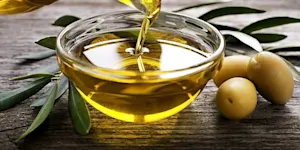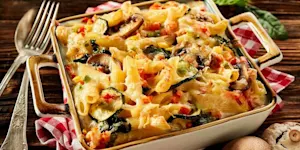What Makes This Word Tick
Kiln, a short and sturdy little word, refers to a type of oven used for firing, drying, or baking. It is most commonly associated with pottery, ceramics, and bricks. The word itself sounds as solid and dependable as the results it helps achieve, conjuring images of creative clay forms coming to life through gentle yet persistent heat.
If Kiln Were a Person…
Kiln would be an artisan with a warm personality and a long history of practical wisdom. This person would possibly wear glasses speckled with clay dust, enjoying the steady process of transforming raw, shapeless earth into something both useful and beautiful. They might laugh gently at life’s hurried pace, preferring instead the slow, purposeful rhythm of their craft.
How This Word Has Changed Over Time
The word "kiln" hasn't strayed far from its roots. Originating from the Old English "cyline," it has always been about heat and creation—baking, drying, transforming. Once primarily associated with brick-making and lime production in the industrial realm, its use has expanded into the arts, most notably in pottery and ceramics.
Old Sayings and Proverbs That Use Kiln
While "kiln" doesn't show up explicitly in old sayings, the spirit of transformation through heat is a timeless theme. Proverbs such as "necessity is the mother of invention" echo the creative perseverance seen in kilns' traditional use.
Surprising Facts About Kiln
One intriguing fact about kilns is their variety. They range from ancient wood-fired versions to modern electric models used in artistic and industrial settings. Some kilns aren't confined to ground level—there's even a type known as a "beehive kiln" due to its dome shape, which optimizes heat distribution!
Out and About With This Word
You might encounter "kiln" at a local pottery class, an industrial architecture tour, or even when visiting a historical site with brick structures. Pottery lovers, in particular, often use the word as they chat about the perfect glaze or that elusive, magical firing temperature.
Pop Culture Moments Where Kiln Was Used
In the world of film and television, kilns make cameo appearances in shows about pottery and ceramics, often highlighting the suspenseful moment when the kiln is opened to reveal the potter's latest creation. Shows on craft and creativity, like "The Great Pottery Throw Down," celebrate the kiln's role in the transformation process.
The Word in Literature
Kilns are primarily featured in prose where craftsmanship and creation play pivotal roles. They might figure into stories about artisans or craftspeople who work in solitude, focusing on their process. Books about traditional crafts or historical fiction where ceramics play a background role might embrace the metaphorical depth of the kiln.
Moments in History with Kiln
Kilns have quietly powered many pivotal moments, from the creation of ancient pottery and the bricks that built civilizations to the ceramic insulators used in the early days of telecommunications. Each fired pot and brick tells a tale of human innovation and adaptation, fueled by the reliable heat of a kiln.
This Word Around the World
While "kiln" translates directly into many languages, each culture might have its own beloved types—the Japanese noborigama, for example, fires ceramics on a slope, creating beautiful variations in color and texture. Globally, the connection to ceramics and bricks remains strong, emphasizing the word’s universal essence of transformation.
Where Does It Come From?
"Kiln" comes from the Latin "culina," which means kitchen. This implies a place of warmth and creation, resonating with the culinary arts and the transformation of raw ingredients into something new, edible, or otherwise.
How People Misuse This Word
People sometimes confuse kilns with regular ovens or other types of heat-producing devices. While an oven indeed provides heat for baking, a kiln specializes in a different kind of thermal magic—one that hardens and transforms materials like clay and brick.
Words It’s Often Confused With
Oven: While both produce heat, ovens are typically used for food, not crafts.
Furnace: This is more about heating spaces or materials to melt, unlike the craftsman's clay-firing kiln.
Stove: These primarily cook food, making the kiln's artistic role quite distinct.
Additional Synonyms and Antonyms
Synonyms for kiln might include "furnace" and "oven," though neither captures its artistic finesse. Antonyms are harder to pin down but could include terms that mean cooling or solidifying without heat.
Want to Try It Out in a Sentence?
After weeks of sculpting their pieces, the pottery students eagerly awaited the kiln's revelation, where their hard work would transform into vibrant, colorful ceramics.
















